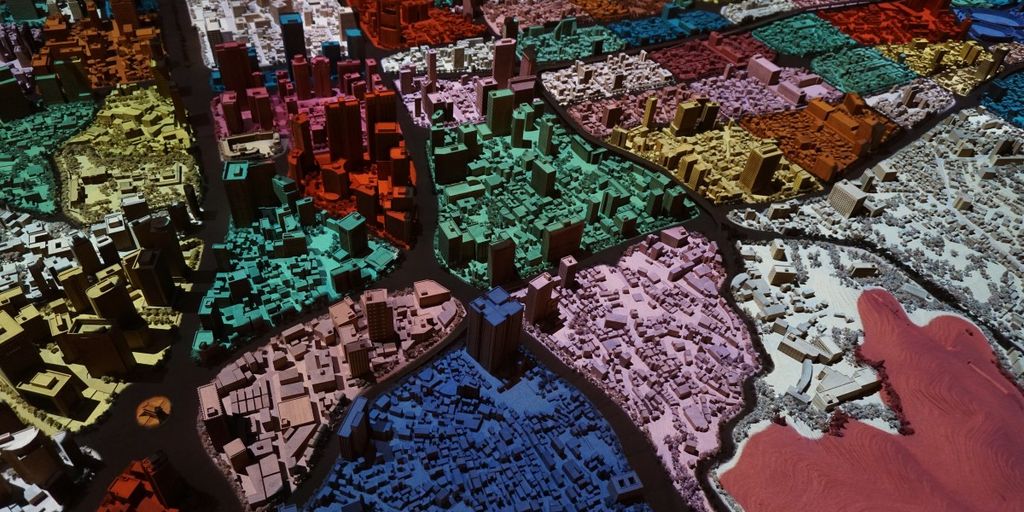While Seoul often steals the spotlight as South Korea’s premier destination, the country boasts a plethora of vibrant cities each offering unique experiences. From coastal gems and ancient capitals to culinary havens and natural paradises, there’s much to explore beyond the bustling streets of Seoul. This article delves into some of Korea’s most captivating cities, each brimming with cultural, historical, and recreational treasures.
Key Takeaways
- Busan offers a mix of beautiful beaches, historic sites, and vibrant nightlife.
- Gyeongju is a treasure trove of cultural heritage, traditional villages, and fascinating museums.
- Incheon serves as a gateway to Korea with its cultural districts, modern architecture, and diverse shopping and dining options.
- Jeonju is renowned for its culinary delights, historic hanok villages, and lively festivals.
- Jeju Island is a natural paradise with stunning beaches, volcanic landscapes, and rich cultural history.
Busan: The Coastal Gem
Busan is a bustling port city located on the southeastern coast of South Korea, renowned for its stunning beaches, delicious seafood, and vibrant nightlife. Busan’s war memorials and museums offer insight into the past and the tumultuous Korean War history while the vibrant Haeundae district and Jagalchi Fish market provide a taste of Busan’s modern culture.
Gyeongju: The Ancient Capital
Gyeongju, often referred to as a "museum without walls", is a city on the southeast coast of South Korea. It is filled with historic sites reflecting its past as the capital of the Silla Kingdom. Among the highlights are Bulguksa Temple, a UNESCO World Heritage site, and the adjacent Seokguram Grotto, which showcase the ancient craftsmanship of Korea. Gyeongju is also home to Tumuli Park, where royal Silla-era tombs are set in large, grassy mounds.
Cultural Heritage Sites
Gyeongju is one of the most visited historical places in South Korea, especially for history lovers. The city is crammed with ancient sites and historic buildings dating back to the seventh-century Silla Kingdom. You can spot swooping hanok rooftops at every turn, and right in the city center, the public Tumuli Park coddles numerous vast, grassy hillocks.
Traditional Korean Villages
In addition to exploring the temples and grottos, you must also visit Gyeongju’s National Museum, which is full of history and has a trove of exhibits. If museums are not your thing, then why not head to the (relatively close) Gyeongju National Park? You’ll enjoy the beautiful views and natural surroundings.
Museums and Galleries
Gyeongju is a pocket-sized city crammed with ancient sites and historic buildings. It is often referred to as a "museum without walls" because of its rich history and numerous cultural heritage sites. The city offers a unique blend of ancient and modern attractions, making it a must-visit destination beyond Seoul.
Incheon: Gateway to Korea
Chinatown and Cultural Districts
Incheon is home to Korea’s only official Chinatown, a vibrant area filled with colorful streets, traditional Chinese architecture, and delicious food. Visitors can explore cultural districts that showcase a blend of Korean and Chinese heritage, making it a unique destination.
Modern Architecture and Parks
The city boasts impressive modern architecture, including the iconic Tri-Bowl and the futuristic Songdo International Business District. Incheon is also known for its beautifully maintained parks, such as Central Park and Grand Park, which offer a peaceful retreat from the bustling city life.
Shopping and Dining
Incheon offers a diverse shopping experience, from traditional markets to modern shopping malls. The city is also a food lover’s paradise, with a wide range of dining options that cater to all tastes. Whether you’re looking for street food or fine dining, Incheon has something to offer.
Incheon is not just a gateway to Korea but a destination in its own right, offering a mix of cultural experiences, modern attractions, and culinary delights.
Jeonju: The Culinary Heart

Famous Dishes and Food Tours
Jeonju is renowned for its impressive kitchen credentials. One of the most famous dishes here is Bibimbap, which originated in this region. The thick, tar-like soy sauce served with traditional Bibimbap is fermented for more than five years, creating a traditional-style sauce that’s far superior to what you might find elsewhere. Other popular foods include street-food snacks like fried squid and fiery Korean Fried Chicken (KFC). You can also enjoy banchan-style dining, where sharing dishes are served to the whole table.
Historic Hanok Villages
In Jeonju Hanok Village, you can see traditional homes constructed in the early 20th century. Visitors can practice the art of making Hanji paper or enjoy some local soju. The village is also home to the Jeonju National Museum, which houses one of South Korea’s most significant collections of antiquities. This area is a must-visit for anyone interested in Korean culture and history.
Festivals and Events
Jeonju hosts various festivals and events throughout the year. These include food festivals where you can taste a variety of Korean dishes and cultural festivals that showcase traditional Korean music, dance, and crafts. The vibrant atmosphere makes it a great place to experience the local culture and traditions.
Daegu: The Fashion City
Shopping Districts
Daegu is a city that has a clean, almost sparkling appearance and is one of the cities beyond Seoul that you must visit. Located in a mountainous area, it makes a great vacation spot. Daegu is known for its Oriental Medicine Cultural Center, but there is so much else to see and do. The shopping districts in Daegu are vibrant and full of life. You can find everything from high-end fashion to unique local boutiques. Don’t miss out on the bustling Seomun Market, one of the largest traditional markets in Korea.
Cultural Festivals
Daegu hosts a variety of cultural festivals throughout the year. These festivals showcase the rich history and traditions of the area. One of the most popular events is the Daegu Yangnyeongsi Herb Medicine Festival, which celebrates the city’s long history with oriental medicine. Another highlight is the Daegu International Opera Festival, attracting performers and audiences from around the world.
Historical Landmarks
Daegu is home to several historical landmarks that offer a glimpse into Korea’s past. The Donghwasa Temple is a must-visit, known for its beautiful architecture and serene surroundings. The city also features the Daegu Modern History Museum, where you can learn about the city’s development over the years. Exploring these sites provides a deeper understanding of Daegu’s cultural and historical significance.
Jeju Island: Nature’s Paradise
Beaches and Coastal Trails
Jeju Island, located off Korea’s coast, is renowned for its stunning beaches and coastal trails. The picturesque island of Jeju is a UNESCO–listed gem lying off the southern shores of South Korea. It is a popular honeymoon and vacation destination for both locals and tourists. The island offers numerous trails that provide breathtaking views of the ocean and surrounding landscapes.
Volcanic Landscapes and Caves
Jeju Island boasts unique volcanic landscapes, including Hallasan Mountain and Seongsan Ilchulbong. These sites offer hiking trails and panoramic views. The island is also famous for its lava tubes, such as Manjanggul Cave, which are a must-visit for nature enthusiasts.
Cultural and Historical Sites
Jeju is home to the Haenyeo divers, local women who use traditional methods and equipment to gather seafood. A visit to the Seongeup Folklore Village gives visitors a chance to learn more about local culture. Additionally, you can explore Glass Castle, a theme park specializing in glass sculptures, and Loveland, a theme park known for its romantic and adult-only attractions.
Jeju Island is often referred to as a beach resort, but there are many points of interest beyond the beaches. You can travel there by plane or ferry.
Suwon: The Fortress City
Suwon is a charming city located just an hour away from Seoul, making it perfect for a day trip. Visit the UNESCO-listed Hwaseong Fortress, explore traditional Korean houses, or simply stroll through the picturesque streets of the city.
Conclusion
Exploring beyond Seoul reveals a South Korea rich in diverse experiences, from the historical allure of Gyeongju to the coastal charm of Busan. Each city offers its unique blend of culture, history, and modernity, showcasing the multifaceted character of the country. Whether you’re wandering through ancient palaces, savoring local delicacies, or enjoying the vibrant nightlife, Korea’s cities promise unforgettable adventures. So, step beyond the capital and discover the hidden gems that make South Korea a truly remarkable destination.
Frequently Asked Questions
What are the must-visit attractions in Busan?
Busan offers a variety of attractions including its beautiful beaches like Haeundae and Gwangalli, historic sites such as Beomeosa Temple, and vibrant nightlife in areas like Seomyeon and Haeundae.
What is Gyeongju famous for?
Gyeongju is known for its rich cultural heritage, including UNESCO World Heritage Sites like Bulguksa Temple and Seokguram Grotto, as well as traditional Korean villages and numerous museums.
How do I get to Incheon from Seoul?
Incheon is easily accessible from Seoul via the Incheon International Airport, which is one of the largest airports in the world. You can also take the AREX train, buses, or drive via the expressway.
What food is Jeonju known for?
Jeonju is famous for its traditional Korean dishes, especially Bibimbap. The city also offers various food tours where you can explore its culinary delights, including street food and traditional markets.
What makes Daegu a fashion city?
Daegu is renowned for its vibrant fashion industry, with numerous shopping districts like Dongseongno Street. The city also hosts several cultural festivals and fashion-related events throughout the year.
What natural attractions can I explore on Jeju Island?
Jeju Island is a nature lover’s paradise, offering stunning beaches, coastal trails, volcanic landscapes like Hallasan Mountain, and fascinating caves such as Manjanggul Cave.

